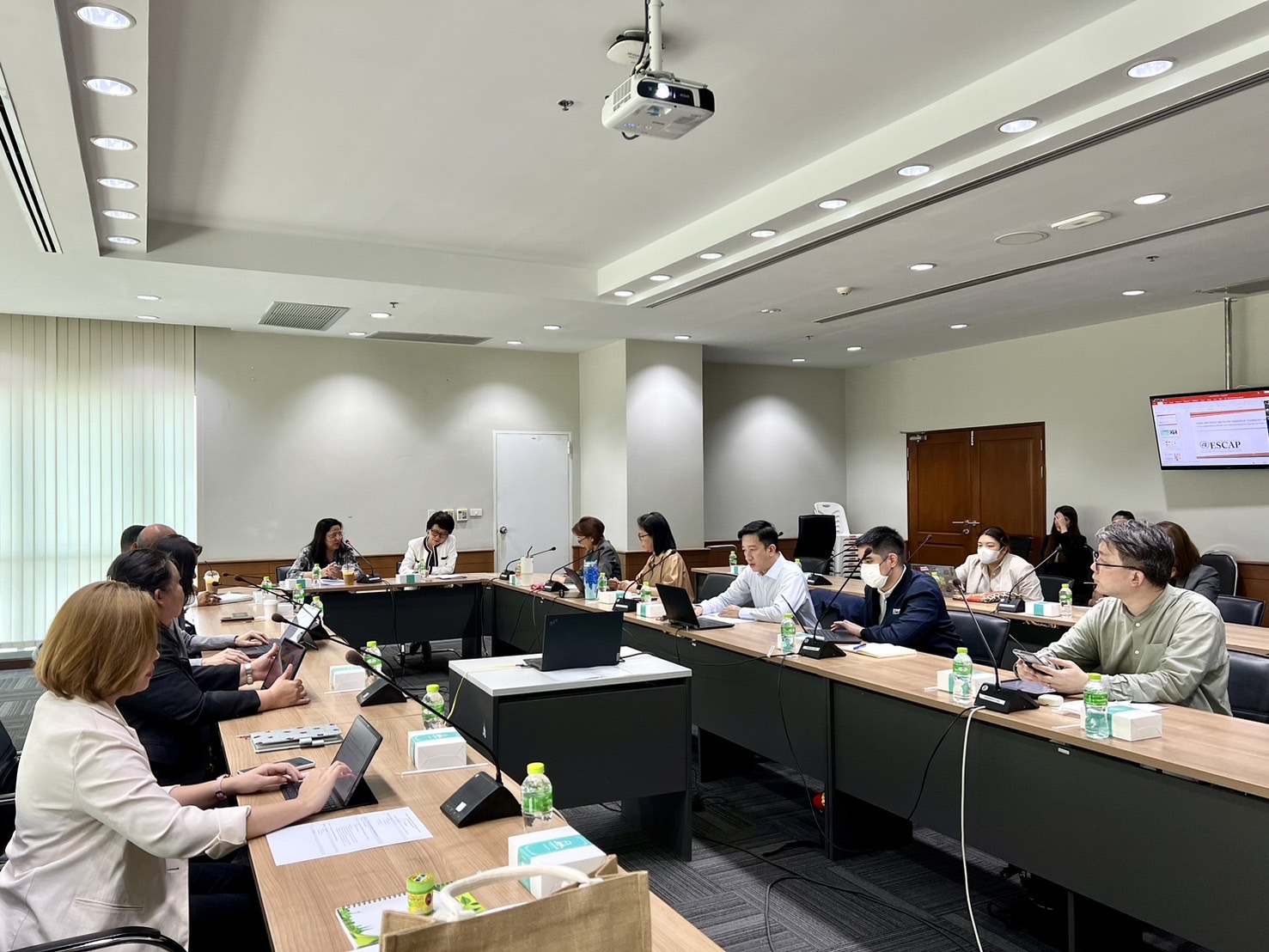
|
Getting your Trinity Audio player ready...
|
Sustainable development is essential for nations, aiming to meet present needs without compromising future generations’ ability to meet their own. This involves balancing economic, social, and environmental factors for long-term prosperity. The United Nations’ adoption of the Sustainable Development Goals (SDGs) in 2015 set a global agenda to improve the planet and humanity by 2030. To achieve these goals, embracing technology is crucial for countries to accelerate progress and maintain competitiveness while pursuing sustainable objectives.

Recognising each nation’s priorities and needs based on economic development, social demands, and international cooperation, all share a common goal of a sustainable future. Thailand recently hosted a Stakeholder Meeting between the Asian and Pacific Centre for Transfer of Technology (APCTT) and various Thai technology agencies.
This meeting aimed to introduce APCTT’s role in facilitating technology transfer and exploring potential collaboration opportunities to support Thailand’s sustainable development journey.
Organisations involved included the Thailand Institute of Scientific and Technological Research (TISTR), the National Science and Technology Development Agency (NSTDA), the Geo-Informatics and Space Technology Development Agency (GISTDA), National Innovation Agency (NIA), King Mongkut’s University of Technology Thonburi (KMUTT), and King Mongkut’s Institute of Technology Ladkrabang (KMITL).
This meeting aligns with Thailand’s commitment to digital transformation, highlighted in the Thailand Digital Transformation Survey Report 2020. The report emphasises the critical role of specialists in AI, machine learning, data analysis, software development, and user experience design in driving the nation’s digital transformation. Leveraging these technologies, Thailand aims to achieve its sustainable development goals.
One example of Thailand’s innovative approach is the Tan Diao Model, presented by Dr Rewadee Anuwattana during the meeting. This successful project combines technology with sustainability principles, using environmentally friendly technologies to manage municipal and plastic waste in line with the Circular Economy Concept. This reduces environmental impact and creates value by converting waste into energy (Waste to Energy) and generating income for communities (Waste to Wealth).
Thailand actively uses technology to address specific sustainability challenges. For example, to combat rising CO2 emissions from motorcycles, Prof Dr Anek Laothamatas, Minister of Higher Education, Science, Research and Innovation (MHESI), initiated field testing for a revolutionary electric motorcycle platform with swappable batteries. This initiative aligns with the 30@30 Policy, aiming for 30% of Thailand’s automotive production to be zero-emission vehicles by 2030. Additionally, it supports human resource development in the manufacturing sector.
As the policymaker, Thailand’s government drives the nation’s digital transformation, playing a crucial role in shaping a more sustainable future. The “GOV Cloud First: Safely Organised” dialogue, led by Mr Prasert Chandraruangthong, Minister of Digital Economy and Society, exemplifies this commitment. The dialogue emphasised the government’s dedication to utilising advanced technologies like cloud computing and AI to modernise its operations and enhance services for citizens.
With over 800 government agencies already using cloud services, the “Cloud First” approach has streamlined workflows and significantly increased efficiency. Moreover, the dialogue highlighted the potential of AI in shaping the future of government services, supporting informed decision-making processes, and improving service delivery for citizens.
Establishing the Government Data Centre and Cloud (GDCC) is a cornerstone of Thailand’s digital transformation strategy. This secure and reliable data storage and processing facility is critical infrastructure for the entire initiative, further demonstrating the government’s commitment to fostering a digital economy and society. Minister Chandraruangthong emphasised the importance of implementing strategic policies and guidelines to ensure the success of digital initiatives to achieve the nation’s sustainable development goals.
This government-led embrace of technologies like cloud computing and AI doesn’t solely benefit operational efficiency but also aligns with Thailand’s broader sustainability objectives. By adopting energy-efficient practices, such as those enabled by cloud computing, the government sets a positive example for environmentally friendly practices, further promoting sustainable development goals.
Thailand’s government is leading in driving digital transformation, not only for operational improvements but also for paving the way towards a greener future for the respective regions in the nation. This stride signifies Thailand’s strong commitment to leveraging innovative digital technologies to pave the way for a more sustainable future, contributing to the global effort towards achieving the UN’s SDGs by 2030.
















